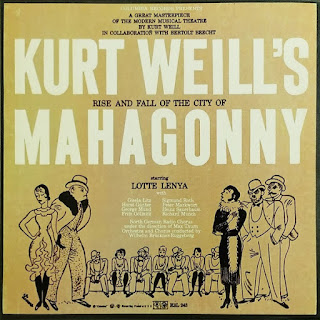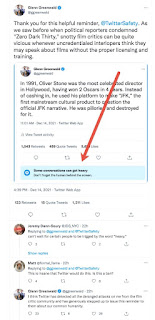continuing, on Srinivasan.
The Right to Sex: What the reviewers say.
For Srinivasan, the notion that people who are fat or transgender or simply don’t fit the white and blond mould are sexually undesirable is a matter for political contestation and moral analysis ... It is a compelling argument ... The book effectively highlights how sexual desire – who we are and are not attracted to – is political and affected by the prevalent injustices in society and relevant to their elimination ...
Srinivasan 2018, LRB
In the hours between murdering three men in his apartment and driving to Alpha Phi, Rodger went to Starbucks, ordered coffee, and uploaded a video, ‘Elliot Rodger’s Retribution’, to his YouTube channel. He also emailed a 107,000-word memoir-manifesto, ‘My Twisted World: The Story of Elliot Rodger’, to a group of people including his parents, his therapist, former schoolteachers and childhood friends. Together these two documents detail the massacre to come and Rodger’s motivation. ‘All I ever wanted was to fit in and live a happy life,’ he explains at the beginning of ‘My Twisted World’, ‘but I was cast out and rejected, forced to endure an existence of loneliness and insignificance, all because the females of the human species were incapable of seeing the value in me.’
He goes on to describe his privileged and happy early childhood in England – Rodger was the son of a successful British filmmaker – followed by his privileged and unhappy adolescence in Los Angeles as a short, bad-at-sports, shy, weird, friendless kid, desperate to be cool. He writes of dyeing his hair blond (Rodger was half-white and half-Malaysian; blond people were ‘so much more beautiful’); of finding ‘sanctuary’ in Halo and World of Warcraft; being shoved by a pretty girl at summer camp (‘That was the first experience of female cruelty I endured, and it traumatised me to no end’); becoming incensed by the sex lives of his peers (‘How could an inferior, ugly black boy be able to get a white girl and not me? I am beautiful, and I am half-white myself. I am descended from British aristocracy. He is descended from slaves’); dropping out of successive schools and then community college; and fantasising about a political order in which he ruled the world and sex was outlawed (‘All women must be quarantined like the plague they are’). The necessary result of all this, Rodger said, was his ‘War on Women’, in the course of which he would ‘punish all females’ for the crime of depriving him of sex. He would target the Alpha Phi sorority, ‘the hottest sorority of UCSB’, because it contained ‘the very girls who represent everything I hate in the female gender ... hot, beautiful blonde girls ... spoiled, heartless, wicked bitches’. He would show everyone that he was ‘the superior one, the true alpha male’.
Late in 2017, the online discussion forum Reddit closed down its 40,000-member ‘Incel’ support group, for ‘people who lack romantic relationships and sex’.
repeats
"I've had someone saying they would rather kill me than Hitler," says 24-year-old Jennie*.
"They said they would strangle me with a belt if they were in a room with me and Hitler. That was so bizarrely violent, just because I won't have sex with trans women."
Jennie is a lesbian woman. She says she is only sexually attracted to women who are biologically female and have vaginas. She therefore only has sex and relationships with women who are biologically female.
Jennie doesn't think this should be controversial, but not everyone agrees. She has been described as transphobic, a genital fetishist, a pervert and a "terf" - a trans exclusionary radical feminist.
Male self-hatred and misogyny, non-white self-hatred, self-hating Jewish boys and Shiksa Goddesses. Passing.
Srinivasan in 2021 in the New Yorker
Today’s trans-exclusionary feminists typically claim that they seek to dismantle a gender system that oppresses girls and women. Yet they tend to reinforce the dominant view that certain bodies must present in particular ways. Although officially on the side of butch lesbians, who are, they say, existentially threatened by “gender ideology,” trans-exclusionary feminists support laws that make such women’s access to public spaces precarious: since the start of the “bathroom wars,” butch lesbians in the U.K. report being increasingly harassed in women’s bathrooms. Meanwhile, trans-exclusionary feminists often criticize trans women for embracing stereotypical femininity. A few years ago, the British philosopher Kathleen Stock tweeted, “I reject regressive gender stereotypes for women, which is partly why I won’t submit to an ideology that insists womanhood is a feeling, then cashes that out in sexist terms straight from 50s.” In a new book, “Material Girls: Why Reality Matters for Feminism,” Stock rows back from this sentiment: “It seems strange to blame trans women for their attraction to regressive female-associated stereotypes when apparently so many non-trans women are attracted to them too.” Yet the reprieve is partial. Her view is that being trans—immersing oneself in a “fiction” that one is of the “opposite” sex owing to a strong identification with it—is a species of gender-nonconforming behavior that can be morally tolerated, but not in cases where it might pose any risk to non-trans women. For Stock, that bar is so high she is not sure that even using a trans person’s pronouns clears it. A journalist recently told me that she found a high-profile trans woman’s embrace of femininity “grotesque.” When Shon Faye, the author of “The Transgender Issue,” a powerful new call for trans liberation, was asked to host Amnesty International’s Women Making History event in 2018, one feminist tweeted a photo of her with the description “a biologically male person, performing as a blow up doll.”
At the same time, trans-exclusionary feminists often ridicule trans women who fail to “pass” as cis women. In 2009, Germaine Greer wrote of “people who think they are women, have women’s names, and feminine clothes and lots of eyeshadow who seem . . . to be a kind of ghastly parody.” And such feminists tend to be dismissive of nonbinary people, who, in their refusal of gender distinction, have a good claim to being the truest vanguard of gender abolition.
repeats
The LA police department (LAPD) announced late on Thursday that it had put out an arrest warrant for Darren Merager, who is now facing five felony counts of indecent exposure at Wi Spa in the Koreatown neighborhood. The charges, filed on Monday, come two months after a viral Instagram video from a woman who filmed herself confronting Wi Spa staff about seeing a “man” naked in front of women and girls in the women’s section of the facility.
Merager has been a registered sex offender since 2006, police said, and has a history of previous indecent exposure charges. Merager was convicted of indecent exposure in LA in 2002 and 2003, and pleaded not guilty to seven counts of indecent exposure in an alleged December 2018 case, according to court records. That case is still open.
Liberal intellectuals admit that orientalism is racism. They're opposed to anti-Semitism. And they're Zionists. And now...
googling, I find Schliesser, linking to Srinivasan chatting it up with Tyler fucking Cowen:
Zionism, "Europe's stability rest[ing] in the capable hands of Angela Merkel", Libertarian Social Darwinism, and...
Cowen: You’ve described yourself as a utopian feminist.
Jesus fucking Christ. What a disaster.


















